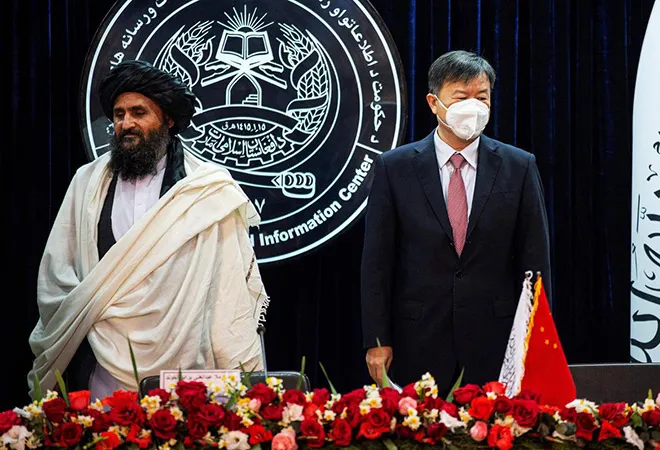-
CENTRES
Progammes & Centres
Location
The oil deal could be a fundamental test for the future of Afghanistan-China cooperation

However, China has been receptive to the Taliban for some time now and has been the most visible power in Kabul since the Taliban took charge. Beijing has hosted multiple Taliban delegations. In 2021, in Tianjin, a few months before Kabul was captured by the Taliban, the then Chinese Foreign Minister Wang Yi hosted Abdul Ghani Baradar, who is now Acting Deputy Prime Minister of Afghanistan. It is not as though Beijing does not have security concerns. It has pushed the Taliban to act against Uyghur-led militant groups operating inside Afghan territory, such as the Turkistan Islamic Party, which targets China’s actions in restive Xinjiang. How cooperative the Taliban has been with China on this point in the recent past remains contested. Economically, China’s approach to Afghanistan would have Pakistan at the centre, so that both states are tied to larger projects such as the Belt and Road Initiative and the China-Pakistan Economic Corridor. However, the rapid deterioration of the security situation between the Taliban and Pakistan, specifically over the Tehrik-i-Taliban Pakistan, may throw a ner in Beijing’s plans. Recent attacks against Chinese targets in Kabul and in Pakistan will test China’s poor record of dealing with Islam as a religion, society, and culture. The fact that Pakistan’s Afghanistan strategy is also imploding will not instil much confidence in Beijing’s power corridors.Economically, China’s approach to Afghanistan would have Pakistan at the centre, so that both states are tied to larger projects such as the Belt and Road Initiative and the China-Pakistan Economic Corridor.
This reality, then, raises a question: is Beijing ready to economically lift the Taliban regime all by itself in exchange for natural resources? And does it see the cost of such a strategy as being affordable? China has a chequered record of running investments and businesses in politically volatile regions from afar. If Beijing was hoping to run its economic strategy in Afghanistan through a blank chequebook and an economically unstable Pakistan which is facing severe political and strategic headwinds, it may now need a rethink. The success or failure of the oil deal could determine the future of Afghanistan-China cooperation. Nonetheless, Beijing would be wary of not becoming another footnote in the ‘graveyard of empires’ story.The economic vision of some in the Taliban, including those who negotiated with the West as well as the Haqqanis, is different from the ideological nucleus of the Taliban, held by Akhundzada and his closely knit circle of advisers and confidants.
The views expressed above belong to the author(s). ORF research and analyses now available on Telegram! Click here to access our curated content — blogs, longforms and interviews.

Kabir Taneja is a Deputy Director and Fellow, Middle East, with the Strategic Studies programme. His research focuses on India’s relations with the Middle East ...
Read More +